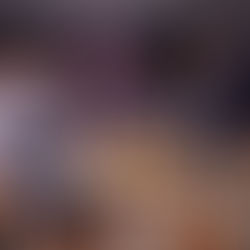Dublin Fringe Festival 2024: Dancehall Blues

Dancehall Blues. Image by Ros Kavanagh
****
Entering CoisCéim Studio for Dancehall Blues, directed and choreographed by David Bolger, you might find yourself wondering if you’re at the right show? Double checking your programme, you discover the word you might have glanced over; dystopia. But this is CoisCéim Dance Theatre and David Bolger. Responsible for some of the most uplifting and beautifully crafted pieces of the past three decades. Works defined by joy, hope and tenderness. In fairness, even when doing dystopia CoisCéim craft it beautifully. But somehow it doesn’t look right. Hazmat boiler suits suggesting workers in a black roomed abattoir. A large disco ball swinging like a wrecking ball set against an industrial soundtrack. The walls replete with fascist images set against a German sounding villain from the 1940s. Meanwhile, two masked dancers conduct a dialogue without a conversation. Bodies, like passive, mechanical meat suits get pulled, pushed, prodded, rolled. All very inhuman. All very 1984. All a little bit cliched. But fear not. As wall curtains are pulled and the world outside overheard, light and something rather crucial enter the space. In no time you’re on familiar, if bittersweet ground. Dancehall Blues serving up a poignant reminder that, at heart, CoisCéim and Bolger are forever hopeless romantics.
What enters the room is humanity, given shape and form by dancers Stephanie Dufresne and Alex O’Neill. An operatic aria sees Dufresne undertake a slow, gentle striptease to peel away the outer skin of the boiler suit. The body humanised is suddenly made more expressive. Meanwhile, O’Neill performs with mechanical rote till the mask is slipped, the human peers out and a similar shedding follows. Now begins a conversation without dialogue. Or series of conversations. Dufresne and O’Neill, like Adam and Eve trapped in their garden of Eden, look through the windows at a joyous street song playing outside. Movement, both natural and curated, crafting exquisite moments in solo and duet. O’Neill’s stuttering, often jerking physicalty mesmerising. Offset by Dufresne's sweeping elegance whether dancing, walking or climbing on chairs. Romance ever present in their flirting stand-offs, their shared playfulness, their gentle oneupmanship. In If You Go Away sung like a French torch song in a 1940s movie. Cork pulled by the teeth then spat to the floor as wine is guzzled from the neck. The penetrating gaze. The stylish, black Fedora. The eternal cigarette… actually, scratch that last one.
Yet dystopia is never far away. The locked door. Voices from outside. The cautionary voice overs. At one point the phrase The Great Reset is written in lipstick on a mirror. Whether referring to the World Economic Forum’s recovery plan post Covid, or something more open ended, the answer is left unclear. What’s clear is that the dancers might be safe in their prison cell, but it’s still a cell. In which their sketchy narrative of short scenes, like album tracks, suggests hope but also whistling in the dark. Dialogue, when it enters, shapeless and weak when addressing too big, too open ended questions. Dufresne and O’Neill’s physical conversations far more beautiful, insightful and heartfelt. As the end arrives, poignant and bittersweet, it’s left to us to wonder if perhaps this is all we have? Moments, dancing together in our prison cells beneath sparkle and starlight. The world gone to riot outside as we wait, and wish, for the best of us. Perhaps. But at moments it looks more than enough. At moments it looks a little like heaven.
Dancehall Blues by CoisCéim Dance Theatre runs at CoisCéim Studio, Fairview Strand, and part Dublin Fringe Festival 2024 until Sept 21.
For more information visit CoisCéim Dance Theatre or Dublin Fringe Festival 2024

































